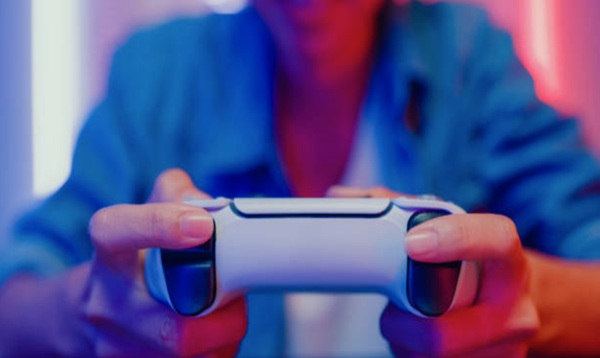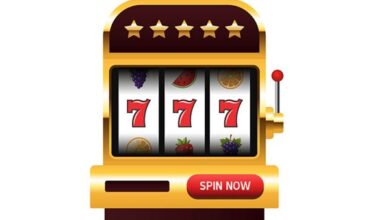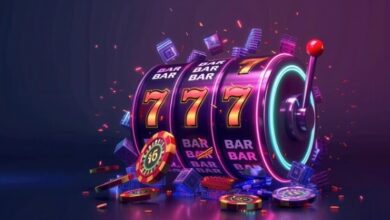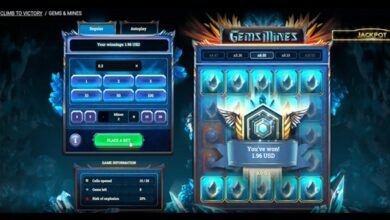Blackjack Winning Hands Tips: Strategies to Improve Your Game

Blackjack is one of the most popular casino games, known for its blend of skill, strategy, and luck. While the game’s rules are simple—get as close to 21 as possible without going over—mastering it requires a deep understanding of strategy and decision-making. Whether you’re a beginner or an experienced player, these blackjack winning hands tips will help you improve your odds and maximize your chances of success.
1. Learn Basic Strategy
The foundation of winning at blackjack is mastering basic strategy. This is a set of rules that tells you the best mathematical decision to make in any given situation, based on your hand and the dealer’s upcard. Basic strategy minimizes the house edge and gives you the best possible chance of winning.
For example:
- If you have a hard 16 (e.g., 10 and 6) and the dealer shows a 7 or higher, you should hit.
- If you have a pair of 8s, you should always split them, as this gives you a better chance of improving your hand.
You can find basic strategy charts online or in blackjack books. Memorizing these charts is essential for making optimal decisions at the table.
2. Understand the Value of Soft Hands
A soft hand is a hand that includes an Ace, which can be counted as either 11 or 1 without busting. Soft hands are advantageous because they give you more flexibility. For example, if you have a soft 17 (Ace and 6), you can hit without the risk of busting, as the Ace can be counted as 1 if you draw a high card.
Key tips for soft hands:
- Always hit on soft 17 or lower.
- Double down on soft 18 if the dealer’s upcard is 3 through 6.
- Stand on soft 19 or higher.
3. Know When to Double Down
Doubling down allows you to double your initial bet in exchange for receiving one additional card. This is a powerful move when used correctly, as it maximizes your potential winnings in favorable situations.
When to double down:
- Double down on 11 if the dealer’s upcard is 2 through 10.
- Double down on 10 if the dealer’s upcard is 2 through 9.
- Double down on 9 if the dealer’s upcard is 3 through 6.
Avoid doubling down when the dealer shows a strong upcard (7 through Ace), as the risk of losing is higher.
4. Master the Art of Splitting Pairs
Splitting pairs can turn a weak hand into two strong hands, increasing your chances of winning. However, not all pairs should be split. Knowing when to split is crucial.
Key splitting rules:
- Always split Aces and 8s. Splitting Aces gives you two chances to hit 21, while splitting 8s turns a weak 16 into two potentially stronger hands.
- Never split 10s, 5s, or 4s. A pair of 10s is a strong hand (20), and splitting 5s or 4s is unlikely to improve your position.
- Split 2s, 3s, 6s, and 7s if the dealer’s up card is 2 through 7.
5. Avoid Insurance Bets
The insurance bet is a side bet offered when the dealer’s upcard is an Ace. It pays 2:1 if the dealer has a blackjack, but it’s generally considered a poor bet for players. Statistically, the odds are not in your favor, and taking insurance increases the house edge.
Instead of taking insurance, focus on playing your hand strategically. If you’re confident in your card-counting skills, you might consider insurance in specific scenarios, but for most players, it’s best to avoid it.
6. Manage Your Bankroll Wisely
Bankroll management is critical to long-term success in blackjack. Set a budget for each session and stick to it, regardless of whether you’re winning or losing. Avoid chasing losses, as this can lead to poor decision-making and bigger losses.
Tips for bankroll management:
- Divide your bankroll into smaller session budgets.
- Bet consistently, avoiding large fluctuations in your wager size.
- Walk away when you’ve reached your win or loss limit.
7. Practice Card Counting (If Allowed)
Card counting is a strategy used to track the ratio of high to low cards remaining in the deck. When the deck is rich in high cards (10s and Aces), the player has a higher chance of getting a blackjack or the dealer busting. While card counting is not illegal, many casinos prohibit it and may ask you to leave if they suspect you’re counting cards.
If you’re playing in a casino that allows card counting, practice the Hi-Lo system, which assigns values to cards and helps you keep track of the deck’s composition. Remember, card counting requires significant practice and discipline.
8. Stay Disciplined and Avoid Emotional Decisions
Blackjack is a game of strategy, not emotion. Avoid making impulsive decisions based on frustration or excitement. Stick to basic strategy, even if you’re on a losing streak, as deviating from it increases the house edge.
9. Choose the Right Table
Not all blackjack tables are created equal. Look for tables with favorable rules, such as:
- 3:2 payout for blackjack (avoid 6:5 payout tables).
- Dealer stands on soft 17.
- Double down after splitting allowed.
- Surrender option available (if you’re familiar with this strategy).
These rules can significantly reduce the house edge and improve your chances of winning.
10. Practice, Practice, Practice
The more you play, the better you’ll become. Use free online blackjack games or apps to practice your skills and test different strategies without risking real money. This will help you build confidence and refine your decision-making.
Conclusion
Winning at blackjack requires a combination of strategy, discipline, and practice. By mastering basic strategy, understanding when to double down or split pairs, and managing your bankroll wisely, you can significantly improve your odds of success. Remember, blackjack is a game of skill, and the more you learn and practice, the better your chances of walking away with a winning hand. Always play responsibly and enjoy the thrill of the game!



